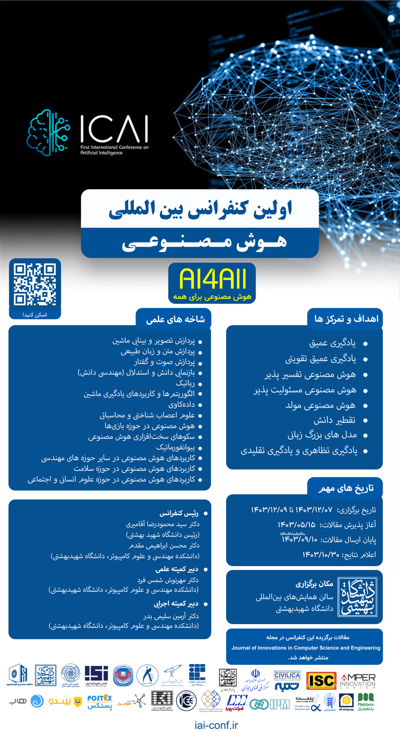0% Complete

نویسندگان :
کلمات کلیدی :
چکیده :
لیست مقالات بایگانی شده
Zahra Lotfi foroushani
Pourya Rahat - Amir Reza Asnafi
Mahdi Asghari - Alireza Talebpour - Ghasem Darzi
Najmeh Hosseinipour-Mahani - Amirreza Jahantab
Javad Pourkrimi - Zahra Ali Akbari
Hojjat Hajizadeh Nowkhandan - Mohsen Kahani
Mahsa Yaghoobi - Abbas Mirzaei - Babak Nouri-Moghaddam
Ali Heirani-Tabas - Pegah Nejat - Mehrnoosh Shamsfard - Sina Mahmudian
Masoud Kaviani - Ahmadreza Samimi - Arman Gharehbaghi - Alireza Jahanbakhsh
Elaheh Hosseini - Maral Alipour Tehrani - Hadi Zare Marzouni

